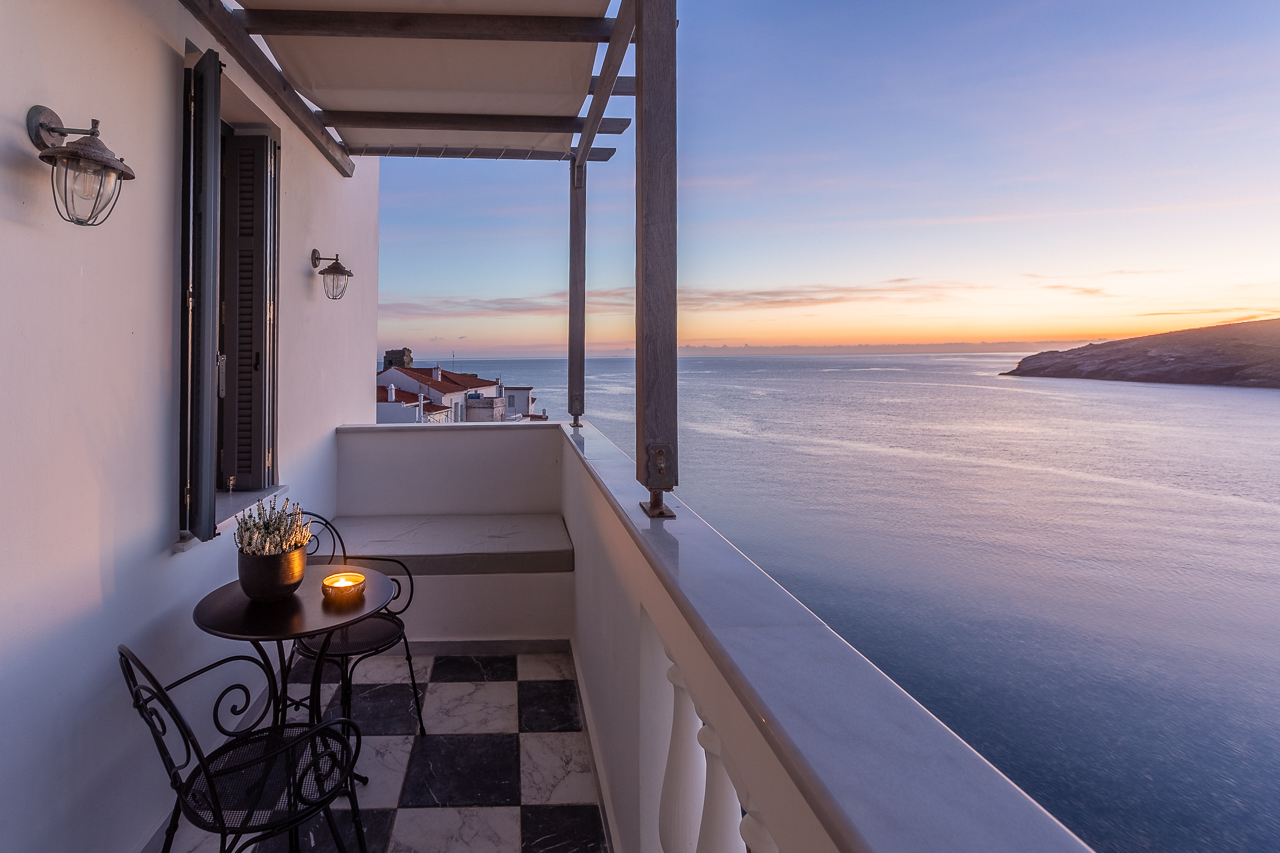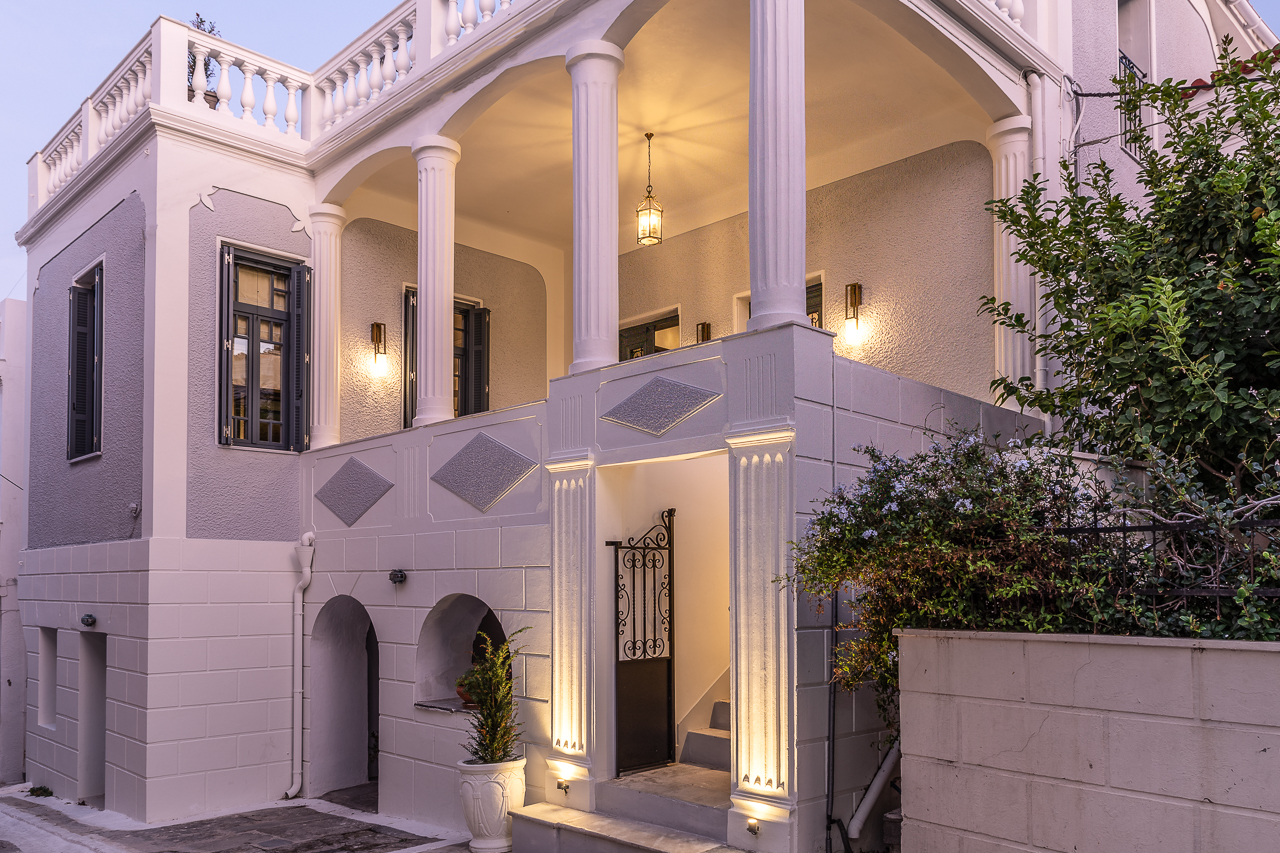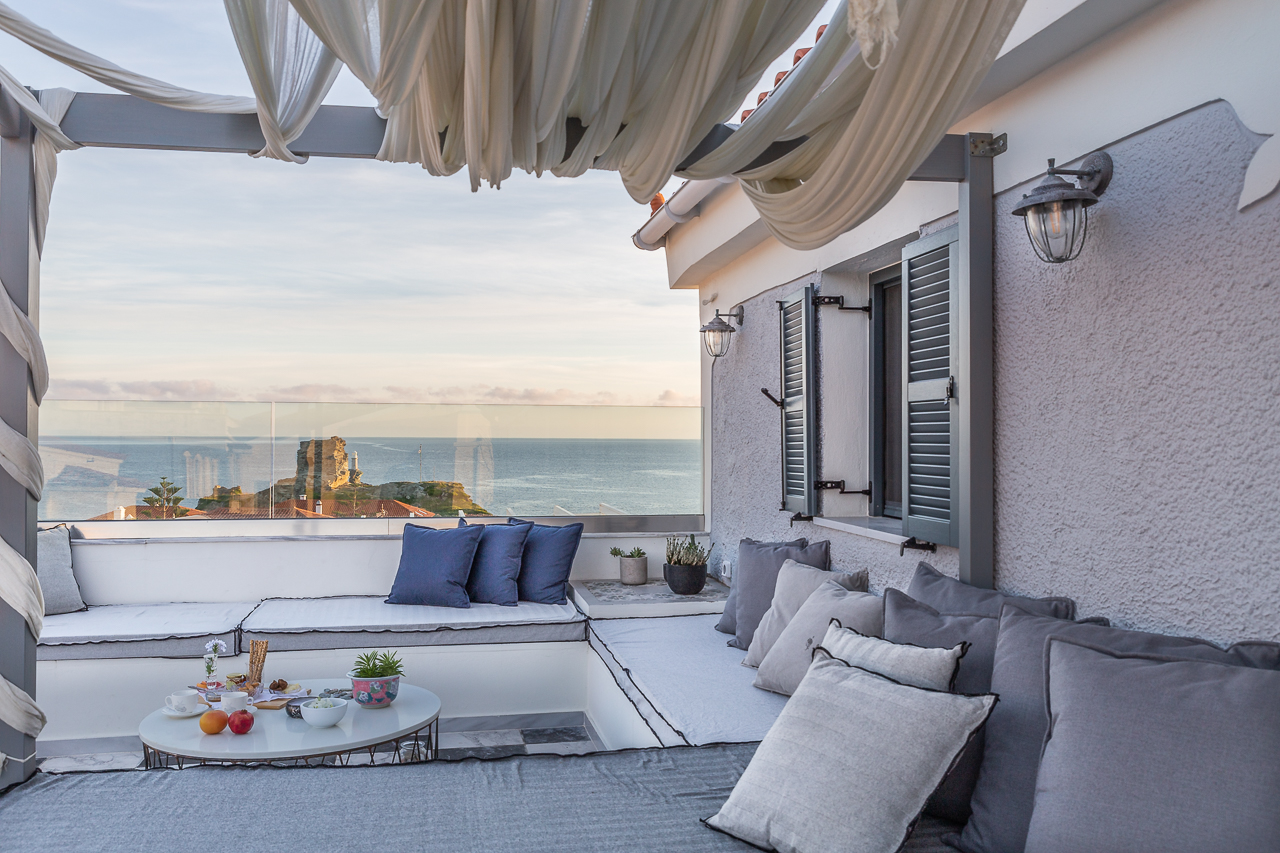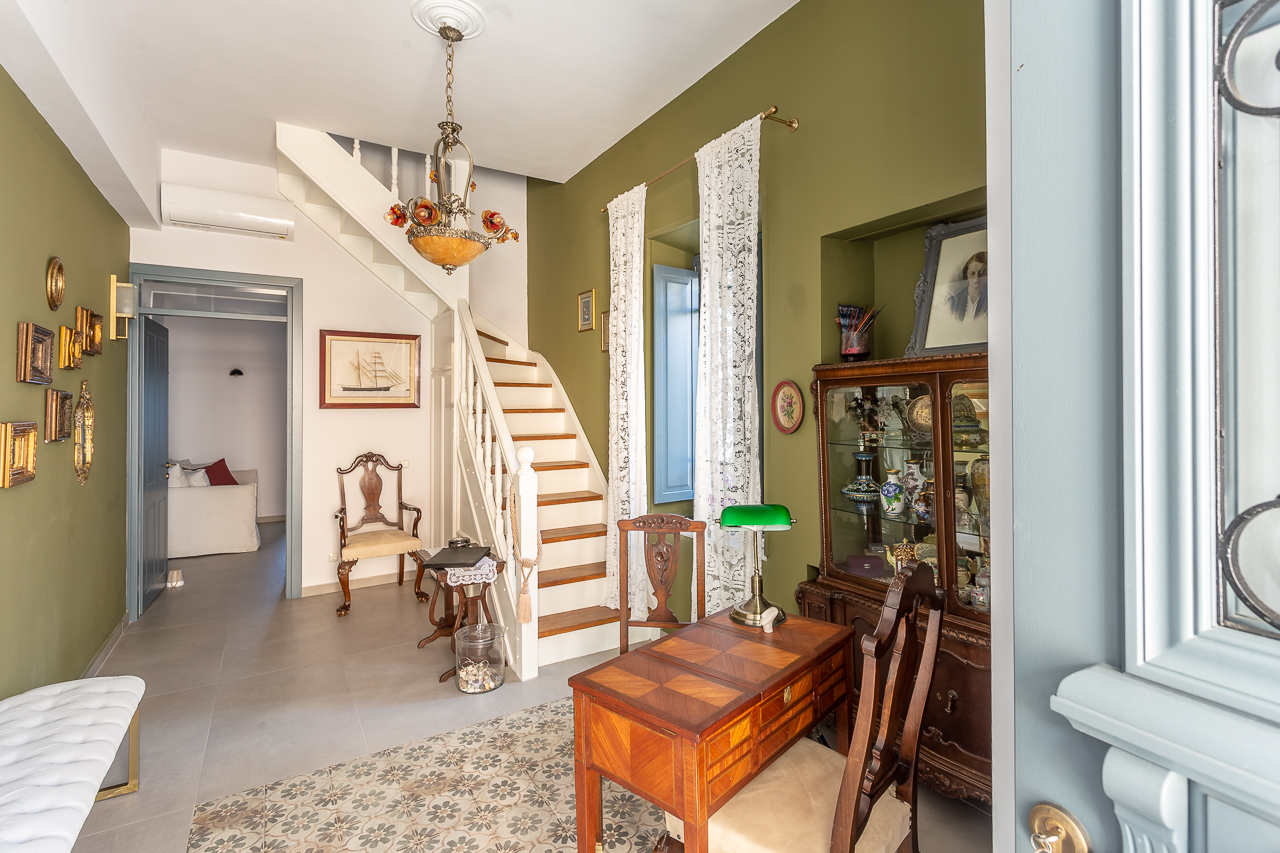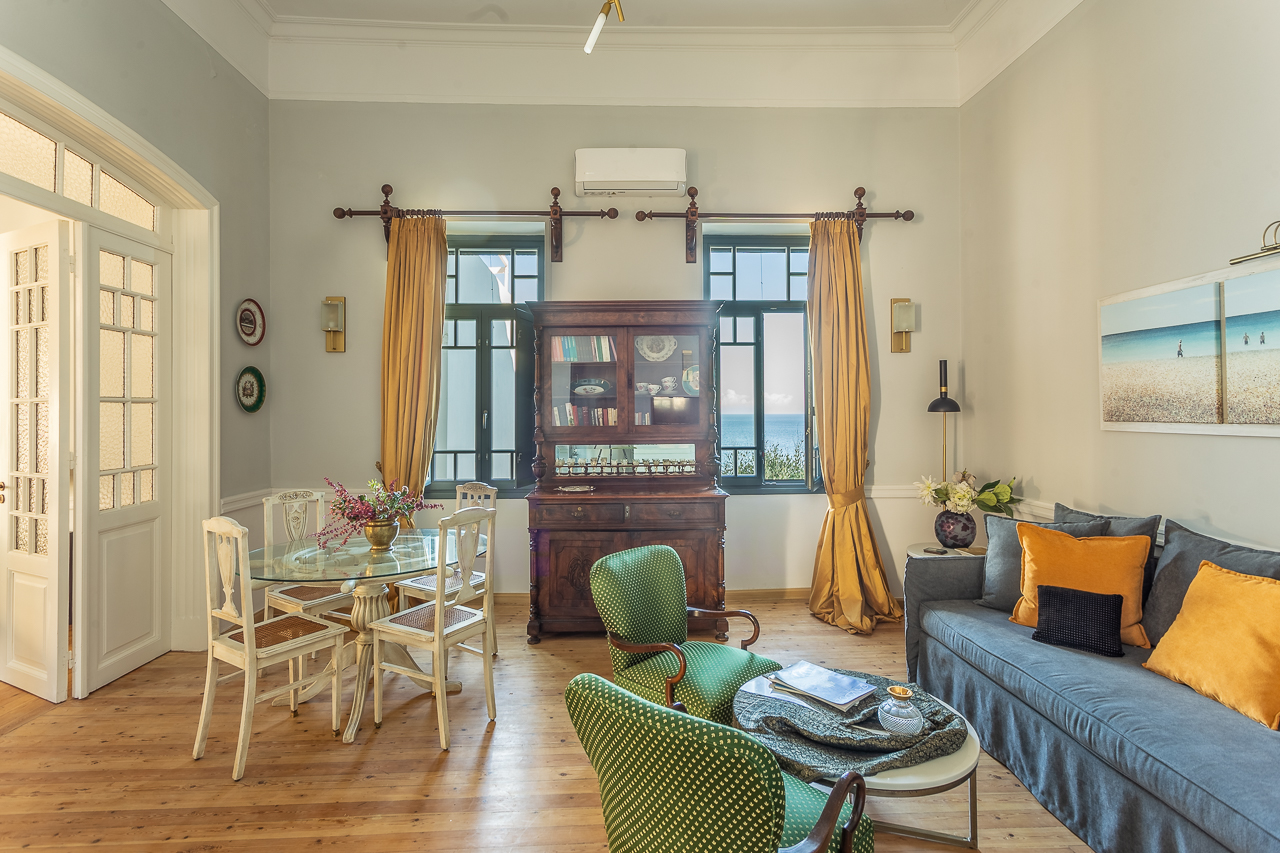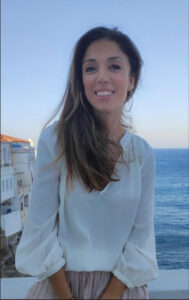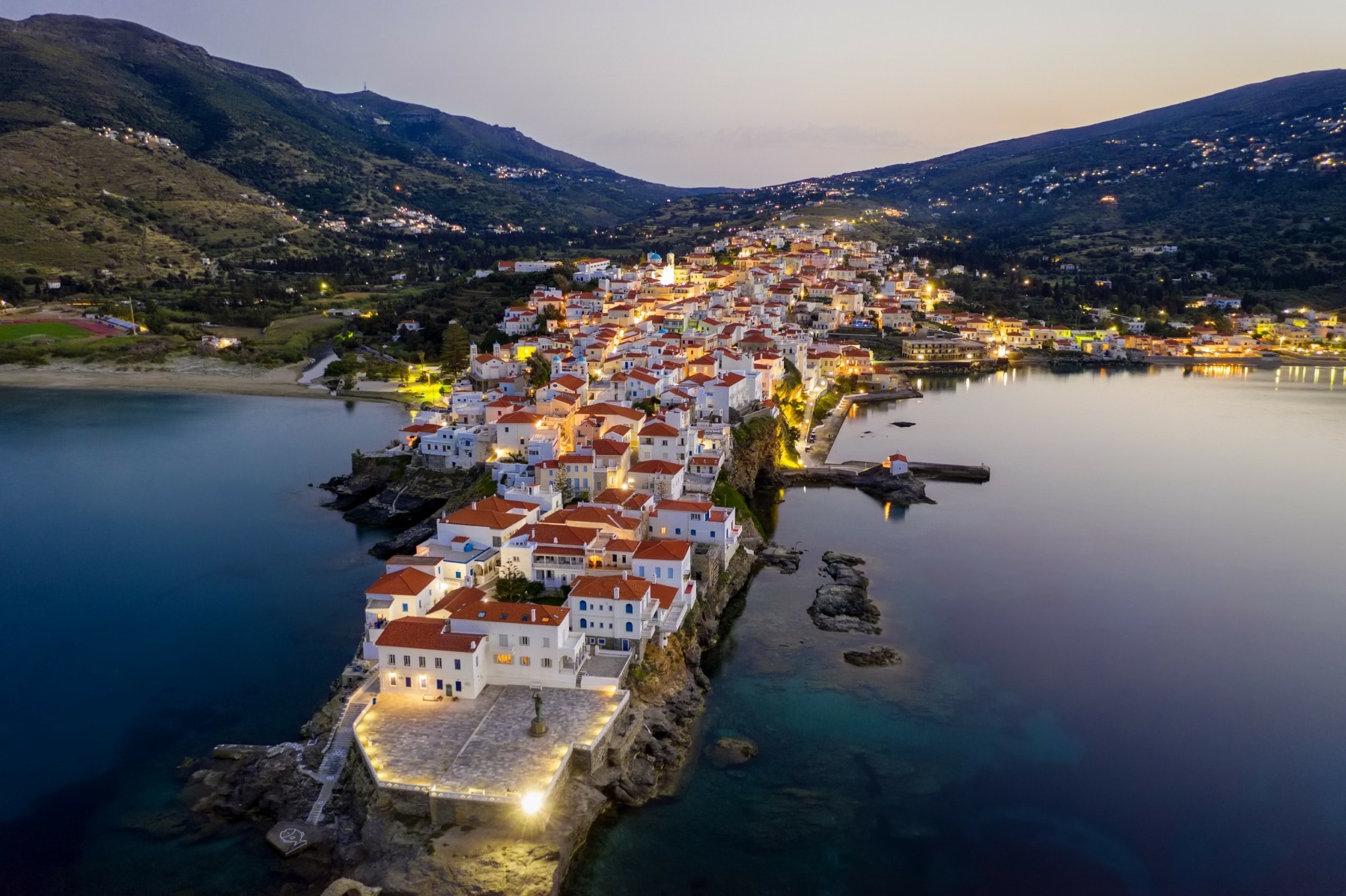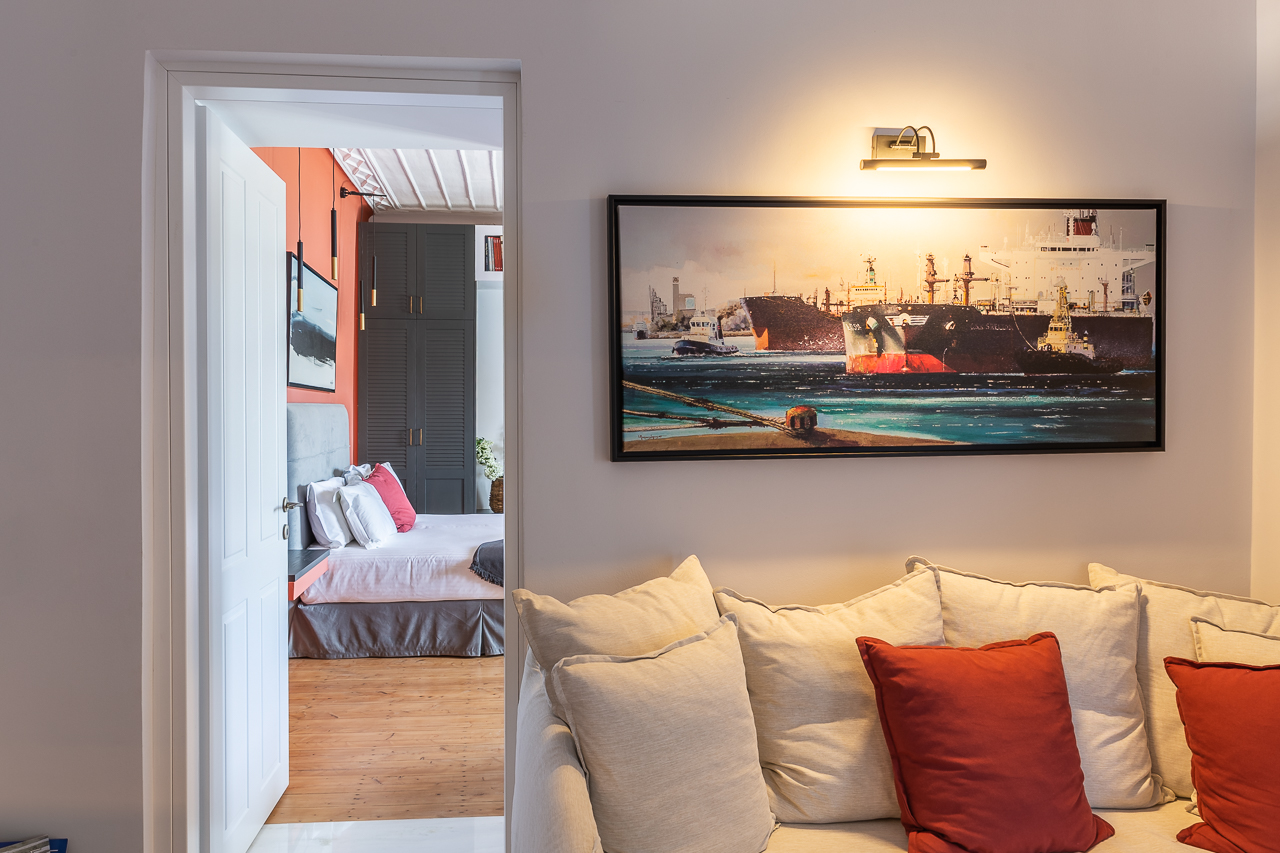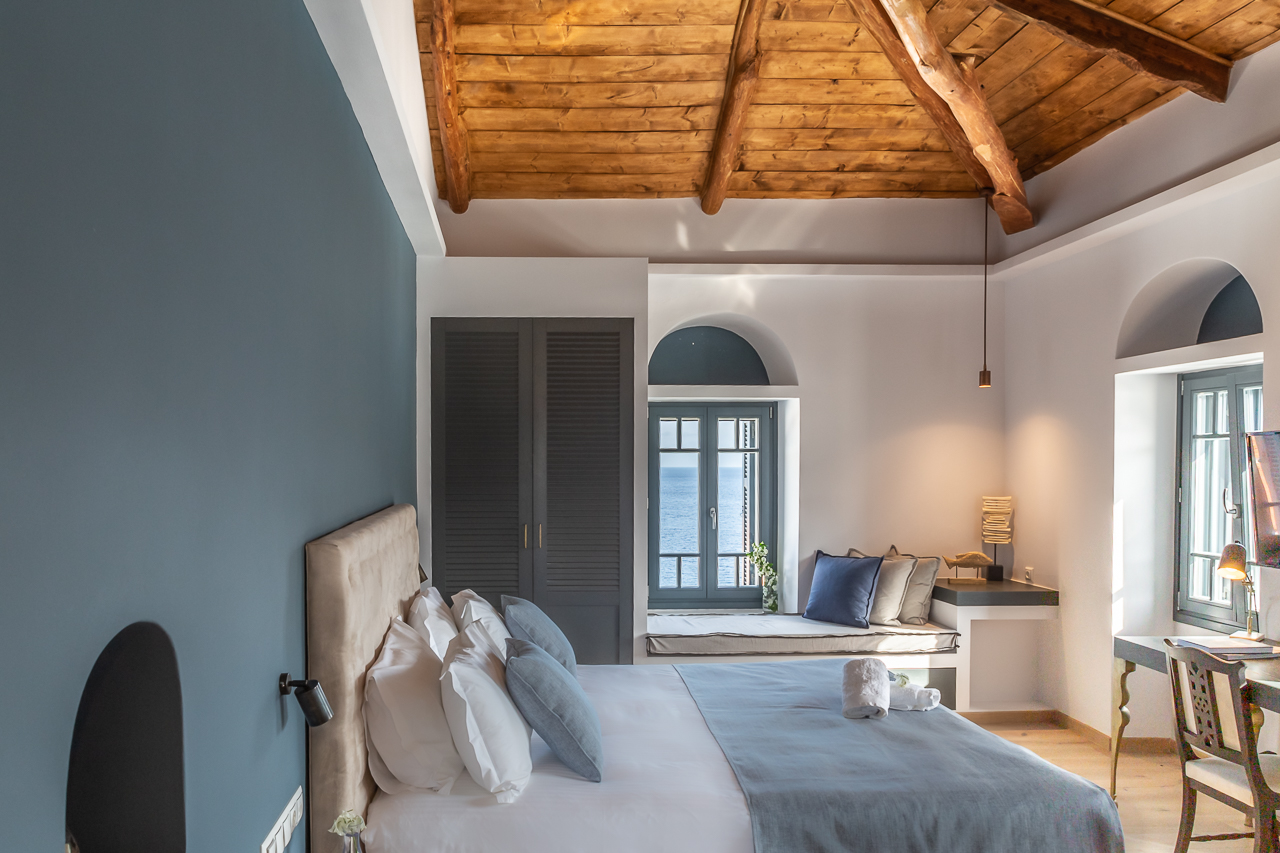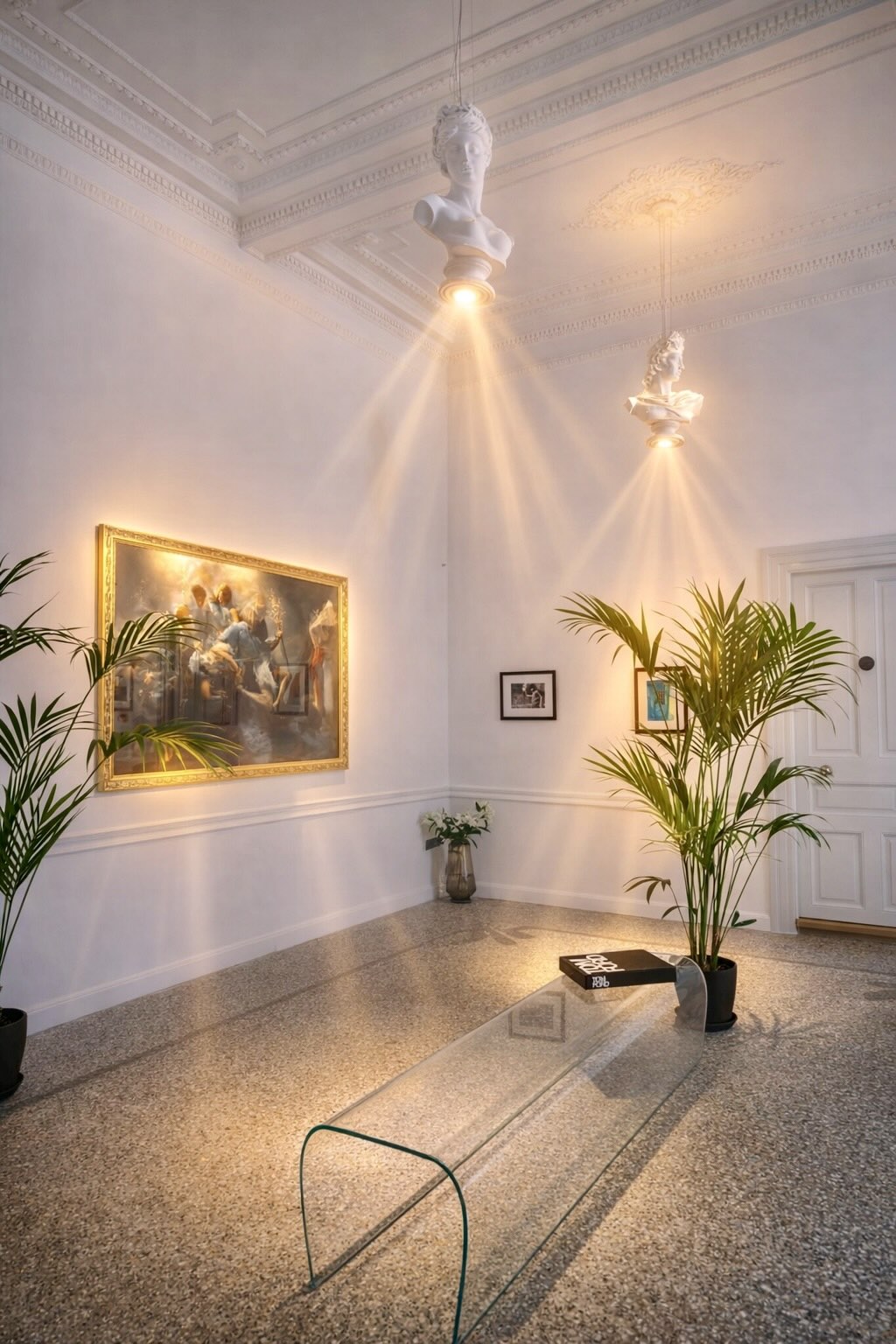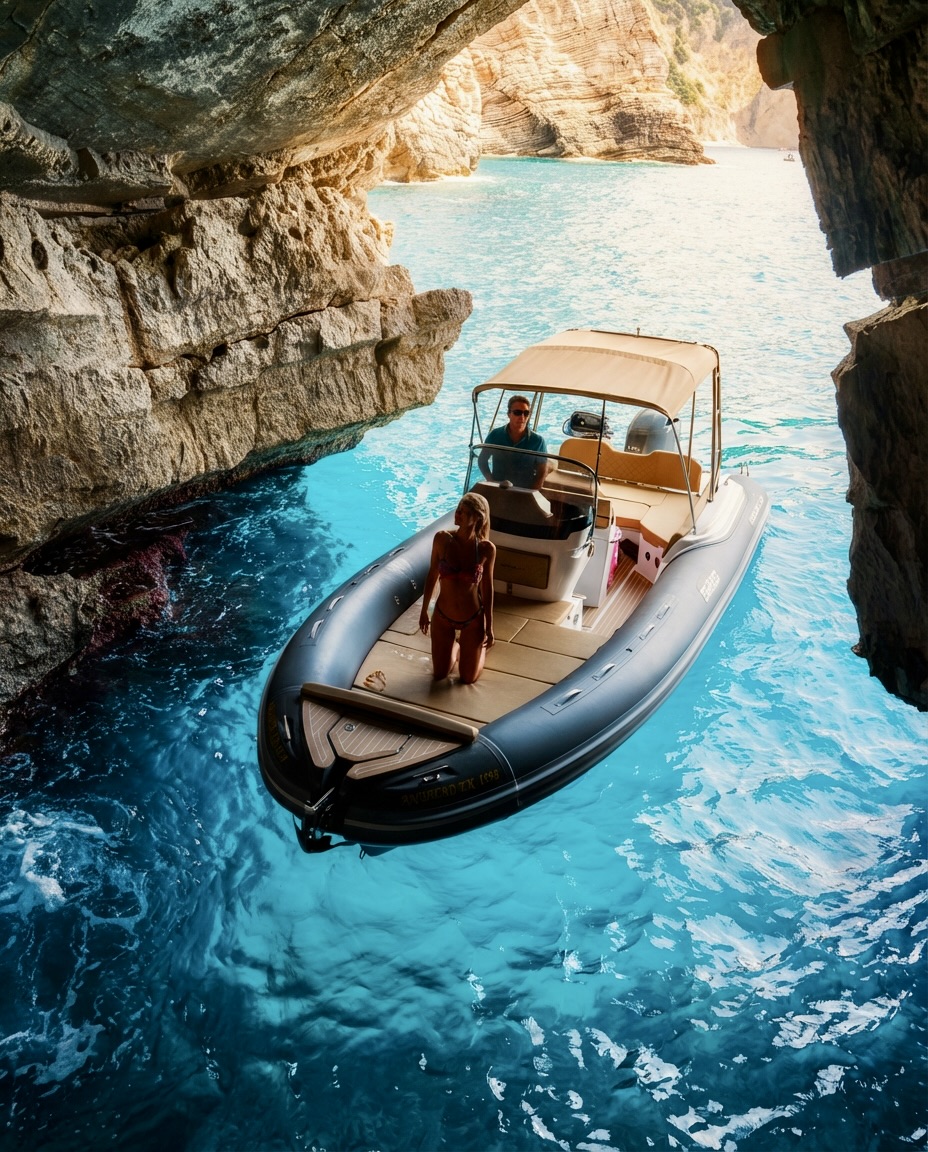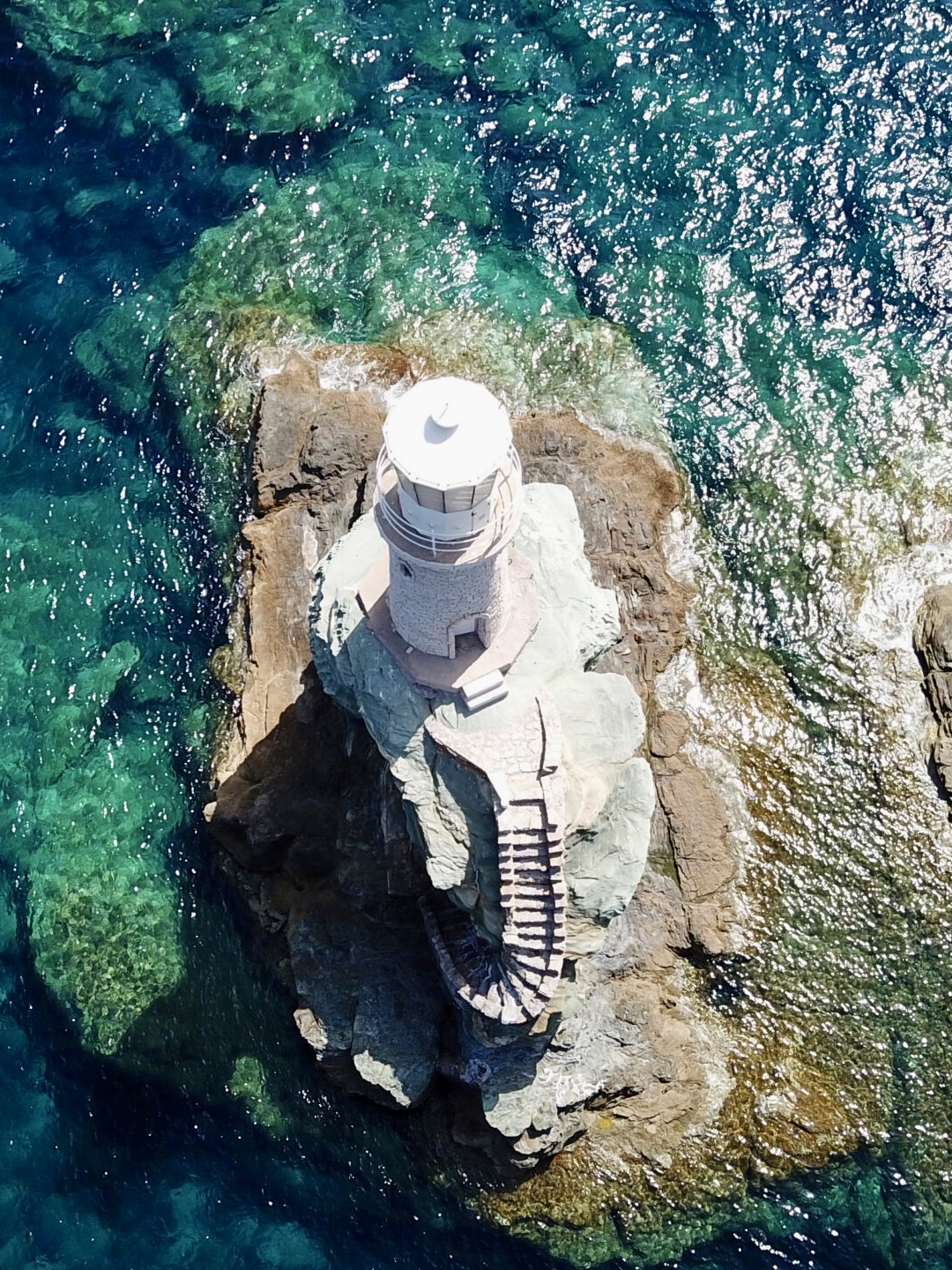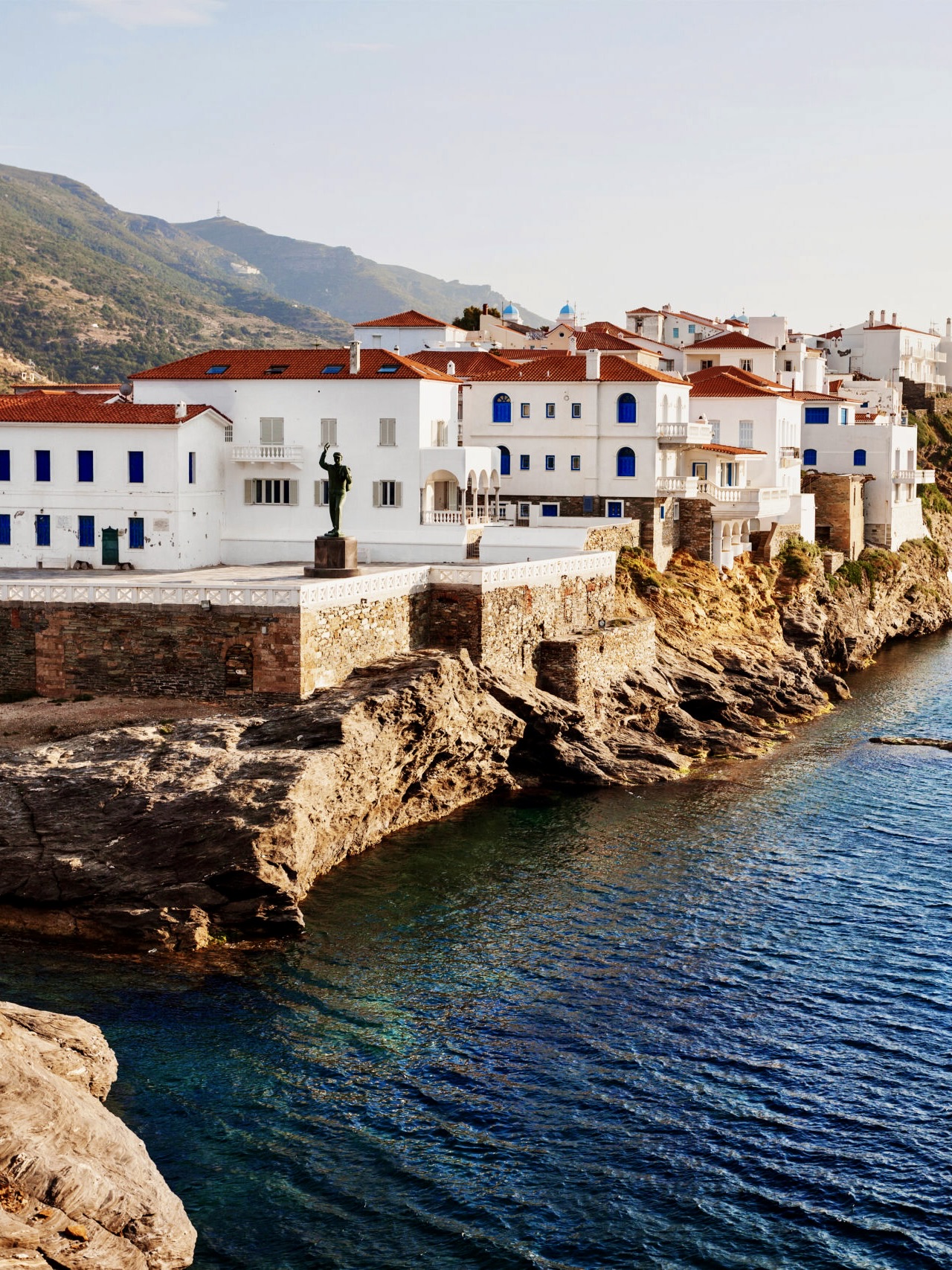When I’m asked where I grew up and I answer, “in Kamara, Andros”, most people are surprised and then immediately ask “and how was it?” to which there is no other answer than: “a life surrounded by sea”.
“The starting point was the island of the Cyclades, Andros – the stunning island, the queen of the Aegean…the most beautiful in the world, the island birthland, in which my childhood years and the early adolescent ones were supported, nurtured and grew” (A. Embirikos, Megas Anatolikos -The Great Eastern)
The above lines exactly describe my childhood. Growing up in the wonderful mansion of my great-grandfather Captain Matthaios Koutsoukos, I felt as if the house had been haunted by his form and he’d emerge from somewhere, sublime and severe, like in the photographs that triggered my imagination. I didn’t have the pleasure of meeting him, but I was lucky enough to grow up listening to stories from the sea, incredible, almost magical stories, pleasant and grim, about epic journeys, shipwrecks, heroic encounters with the waves, about separations, and welcomes, about “harbors you’re seeing for the first time…mother of pear and coral, amber and ebony” (tr. Edmund Keeley) as the poet C. P. Cavafy says.
And for course, all these stories came to life in my imagination as the house was like a ship abandoned to the waves, stuck on the steepest rock of the peninsula. Anywhere you looked you saw the sea around you, at times calm other times angry. It was always there, taking on the most amazing shades, arousing curiosity, exciting the imagination and forming a contemplative mind. “With thinking and with dreams” as the Greek national poet, Dionysios Solomos, puts it.
All year round on the island
Growing up in such a place is not always something simple. There were difficulties due to the lack of infrastructure, of opportunities and of cultural goods, something that made Athens appear like a dreamland to us. However, the island offered priceless life experiences that now, with life in the big cities, seem like the forbidden fruit. The feeling of freedom, roaming in the scenic alleys, constantly playing, going swim twice or three times a day, climbing around the rocks, going to the open-air cinema, are some of the experiences that have marked my childhood.
I still remember the salt in my hair from the wind, as I was going crossing the market to get to school on the harsh February days. The tension at home when my father – Captain Nikos – boarded a ship for work and I run after him begging him to take me with him. And, of course, I’ll never forget that room with the view of the Lighthouse and the Castle – today it is the Ceto suite – where I spent hours locked inside, preparing for the university entry exams. An enormous effort that required bravery due to the lack of professors and tutors.
I often tell students who are preparing for these exams, that on this island we succeeded without help, simply because we dared to swim in the deep end. Such a thing requires bravery. Today we expect knowledge to be given to us, ready, without having to try and without processing it further. And, reflecting on the past, I think that “with such a contemplative mood that the see brings, just by looking at it, it was impossible to not be filled with excessive bravery”. Our grandmother used to say that the sea gives strength and bravery.
The mansion during the interwar period
In 1926, the house is sold by the owner Kleanthis Bistis to captain Matthaios Koutsoukos. The area “Camara” in Hora, near the lower Castle, was already inhabited in the years before the Greek Revolution, and neoclassical mansions were being built. But this particular mansion was part of the fortress already from the time of the Venetian Occupation, as it was located on the highest spot of the rock, and thus helped detect enemy ships.
Helen, from Victorian England, the “Englishwoman” or the “foreigner” as she was called, had to assimilate fast in the society of this place that was, in fact, rightly called Little England. The captains’ wives were different from the other women of the time. Nurtured in shipping tradition, used to the bitter taste of deprivation and absence of their men, hardened by loneliness, they became captains of the land and ruled their houses no matter what.
Helen adjusted quickly and became the heart and soul of the house. Even today, people remember the refined girl with her distinctive hats who was always cheerful. Her five-o-clock teas were famous and brought an English air to a fully formed bourgeois culture. During the Italian Occupation, in the Second World War, she rose to the circumstances, keeping her house open to her fellow citizens, and offering all kinds of help. During the 1943 bombings, when the south part of the house was hit, the people of Camara were sheltered in the “katói”, the house’s ground floor, which had very strong foundations, and survived due to her efforts.
The mansion: a house in the past, a lodging in the present
Houses are dynamic beings, not static, just like humans. “Houses too, have souls” the poet Seferis said. They can continue their stories in a different framework. So, with respect to the original structure and the timeless aesthetic, in 2019, we managed to restore the mansion and change its use creating Camara Suites, named after the area Camara. It’s an effort that originates in the tradition we’ ve inherited, and in our need to preserve it and show it to the world. The house is once again open to visitors who often travel to and love Andros, but also to those who are visiting for the first time and want to experience life in a traditional mansion. The architecture, the nautical elements, the period furniture and the objects brought back from journeys to faraway lands, are all part of the mansion’s character and showcase its nautical tradition. The stories are still being told in the garden where they get mixed with similar stories by our guests.
We also introduce visitors to the culinary tradition of the land. The breakfast offered consists of local flavours like the fame fourtalia (traditional omelette from Andros) and the fine cheeses produced by small dairies on the island, along with local figs and rusks that were part of the breakfast a traditional woman from Andros would prepare.
*In the past years Andros has been going through a creative exploration. It’s not just the trails and the shift towards the island’s inland that contribute to its extroversion. It’s also the efforts of people with the vision to connect with their roots. Businesspeople on the island are following the lead of Camara Suites in similar efforts to develop the mansions of Hora for tourists. The first steps have already been taken and paint a bright and very optimistic future for the island. The idea to use more mansions, both big and small, and have them tell their own nautical stories can mark a new shift to tourism, with a product of higher quality and values since it will guarantee authenticity in terms of spiritual tradition and culture.
The times of the pandemic, after all, benefit the redefining of the island on all levels, something that was apparent this past winter, with the island showing a new face. Apart from being a summer destination it proved to be, in an organic way, a pleasant winter refuge for those seeking to avoid the crowded cities. Hic Andros, hic salta.



